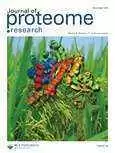Celiac.com 10/15/2014 - A team of researchers recently set out to assess the benefits of a gluten-free diet for people whose blood screens show markers for celiac disease, but who show no physical symptoms. Specifically, they investigated whether screen-detected and apparently asymptomatic adults with endomysial antibodies (EmA) benefit from a gluten-free diet.
 The research team included K. Kurppa, A. Paavola, P. Collin, H. Sievänen, K. Laurila, H. Huhtala, P. Saavalainen, M. Mäki, and K. Kaukinen. They are variously associated with the Tampere Center for Child Health Research, the Tampere School of Health Sciences of the University of Tampere and Tampere University Hospital, the Department of Gastroenterology and Alimentary Tract Surgery at Tampere University Hospital and School of Medicine, University of Tampere, the UKK Institute in Tampere, Finland, the Research Program Unit of the Immunobiology and Haartman Institute at the Department of Medical Genetics of the University of Helsinki in Helsinki, Finland, and the Department of Gastroenterology and Alimentary Tract Surgery, Tampere University Hospital and School of Medicine, University of Tampere, Tampere, Finland and Seinäjoki Central Hospital, Seinäjoki, Finland.
The research team included K. Kurppa, A. Paavola, P. Collin, H. Sievänen, K. Laurila, H. Huhtala, P. Saavalainen, M. Mäki, and K. Kaukinen. They are variously associated with the Tampere Center for Child Health Research, the Tampere School of Health Sciences of the University of Tampere and Tampere University Hospital, the Department of Gastroenterology and Alimentary Tract Surgery at Tampere University Hospital and School of Medicine, University of Tampere, the UKK Institute in Tampere, Finland, the Research Program Unit of the Immunobiology and Haartman Institute at the Department of Medical Genetics of the University of Helsinki in Helsinki, Finland, and the Department of Gastroenterology and Alimentary Tract Surgery, Tampere University Hospital and School of Medicine, University of Tampere, Tampere, Finland and Seinäjoki Central Hospital, Seinäjoki, Finland.
Celiac.com Sponsor (A12):
For their study, they conducted a prospective trial of 3031 individuals at risk for celiac disease based on screens for EmA. They found 40 of 148 seropositive individuals who fulfilled inclusion criteria. They randomly assigned the 40 patients to groups receiving either a gluten-free diet, or a gluten-containing diet.
They then evaluated ratios of small-bowel mucosal villous height:crypt depth, serology and laboratory test results, gastrointestinal symptom scores, physiologic well-being, perception of health by a visual analog scale, bone mineral density, and body composition at baseline and after 1 year. From that point on, they switched the group on the gluten-containing diet to a gluten-free diet, evaluated them a third time. Patients in the first gluten-free diet group remained on that diet.
After 1 year on the gluten-free diet, the mean mucosal villous height:crypt depth values increased (P < .001), levels of celiac-associated antibodies decreased (P < .003), and gastrointestinal symptoms improved compared to patients on gluten-containing diets (P = .003).
The gluten-free diet group showed less indigestion (P = .006), reflux (P = .05), and anxiety (P = .025), and better overall health, based on the visual analog scale (P = .017), compared gluten-containing diet group.
Only social function scores improved more in the gluten-containing diet group than in the gluten-free diet group (P = .031). There were no differences between groups in terms of lab test results, bone mineral density, or body composition.
Most measured parameters improved when patients in the gluten-containing diet group were placed on gluten-free diets.
No subjects considered their experience to be negative and most expected to continue eating gluten-free.
The results show that a gluten-free diet benefits asymptomatic EmA-positive patients, and show the benefits of actively screening patients at risk for celiac disease.
Source:
- Open Original Shared Link








Recommended Comments